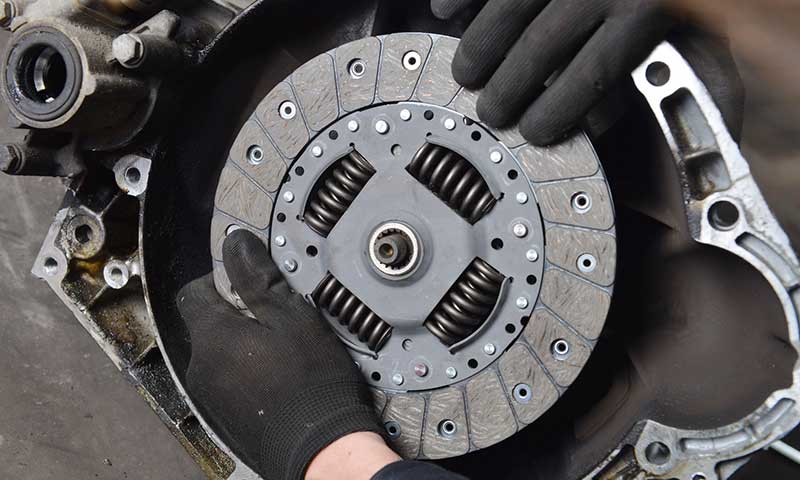The conventional wisdom among auto experts is that you should have your tires rotated every six months, and that’s about how long you should go between having a brake inspection as well.
It can even make sense to do both inspections together so that you can get an undercarriage inspection and wheel component check at the same time. After all, your brake systems rotor is connected to your wheels!
Brake Inspection: Literally, A Lot of Moving Parts
Because brake pads can wear out at different rates depending on your driving habits, getting in to All Around Auto Repair for a brake inspection is really important.
What happens when you slam on the brakes, or ease into a stop for more cautious drivers out there, is that the hydraulic fluid causes the brake calipers to squeeze your brake pads against the brake rotor, a kind of metal disc.
As you can see, your vehicle’s braking system has a lot of moving parts. Those moving parts can get very hot – hitting the brakes at a high enough speed can cause temperatures to rise over one thousand degrees in some parts of your vehicle’s braking system!
Brake Pads
Parts naturally wear out under these kinds of conditions; indeed, brake pads should be replaced about every 50,000 miles.
When you take your vehicle in to All Around Auto Repair for a brake inspection, you’ll have your brake pads, brake calipers, and brake rotors checked.
Brake Calipers
While brake rotors need to be replaced about every 70,000 miles, brake calipers are more touch and go and dependent on a brake inspection because that will determine whether your calipers should be replaced outright or rebuilt.
Generally, though, brake calipers can give you about 70,000 miles and around seven years of service in their tour of duty.
Experienced mechanics usually reach for loaded calipers – loaded calipers include the brake pads and the clips and pins needed for installation – so that your vehicle can get in and out of the shop quicker. You won’t have to worry about mismatched or missing parts as much either with loaded calipers.
Now, while most people definitely don’t go to bed every night thinking about brake calipers (hopefully…), malfunctioning calipers can actually be a life-or-death matter, believe it or not.
A malfuntioning caliper can leak brake fluid and result in brake failure, which further underlines the importance of getting a brake inspection every six months or so.
Brake Rotor
Even though most modern vehicles have sensors to automatically detect and report when the sensor itself is scraping against the brake disc, instead of the brake pads, you need to know that brake pads wear out at different rates.
No Magic Formula for Replacement Schedule
There’s no magic formula for figuring out when your brake pads will need replacing, but generally speaking the more stop-and-go driving that you do and the more that you drive in the cities the more that you’ll need to frequently swap out your brake pads.
Squeaking or squealing noises and reduced ability to actually stop when you hit down the brake on your vehicle are pretty good indications that your brake pads are worn-down.
If you hear a metallic grinding noise when you hit the brakes, then that might actually indicate your brake pads are going the way of the pterodactyl and need to be replaced immediately!
Your brake linings could also gradually deteriorate to the point that your braking distances increase or you might find yourself pushing down the brake pedal more than usual to get the same effect.
That’s where the tutored eye of a trained, experienced auto mechanic who’s done thousands of brake inspections before and can properly diagnose your braking issues comes in.
Instead of the brake pads, rotor or disc you could have issues with your brake fluid or master cylinder. A mechanic will take your vehicle for a spin around the block, do a visual inspection, and check the brake fluid before putting your vehicle on the lift.
Long story short, only a brake inspection at All Around Auto Repair can clear up the ambiguity and quickly get you back on the road. Hit the brakes for a pit stop at All Around Auto Repair today. Schedule an appointment online or by calling (707) 837 – 0646.


